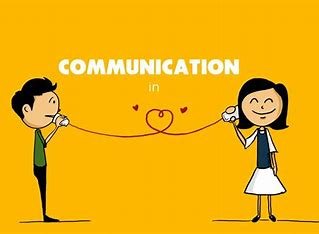Effective communication is essential in building and maintaining healthy relationships. Whether in friendships, family, romantic, or professional relationships, the way we express ourselves and listen to others can make all the difference.

1. Active Listening
- Pay attention to what the other person is saying without interrupting.
- Show interest through body language, like nodding or maintaining eye contact.
- Reflect on their words by asking clarifying questions or summarizing what you’ve heard.
2. Honesty and Openness
- Share your thoughts and feelings honestly, even when it’s difficult.
- Transparency fosters trust and understanding.
- Being open about your needs and boundaries is crucial for mutual respect.
3. Empathy
- Try to understand the other person’s perspective.
- Validate their feelings by acknowledging their experiences, even if you don’t fully agree.
- Empathy strengthens connections by showing care and support.
4. Non-Verbal Communication
- Much of what we communicate happens through body language, tone, and facial expressions.
- Be mindful of how your non-verbal cues might be interpreted.
- Misunderstandings can often arise from misread body language or tone.
5. Conflict Resolution
- Disagreements are natural, but it’s how you handle them that matters.
- Stay calm, avoid blame, and focus on finding a solution rather than winning an argument.
- It’s important to address conflicts promptly rather than letting them build up.
6. Respectful Language
- The words we use impact how people feel. Use language that is respectful and thoughtful.
- Avoid making accusatory or inflammatory statements that could escalate a situation.
- Even in disagreements, using “I” statements (e.g., “I feel hurt when…”) can help keep the conversation from becoming defensive.
7. Quality Time
- Good communication also involves spending time together, which can help strengthen bonds.
- Make space for open discussions, but also ensure you enjoy shared activities without constant talking.
